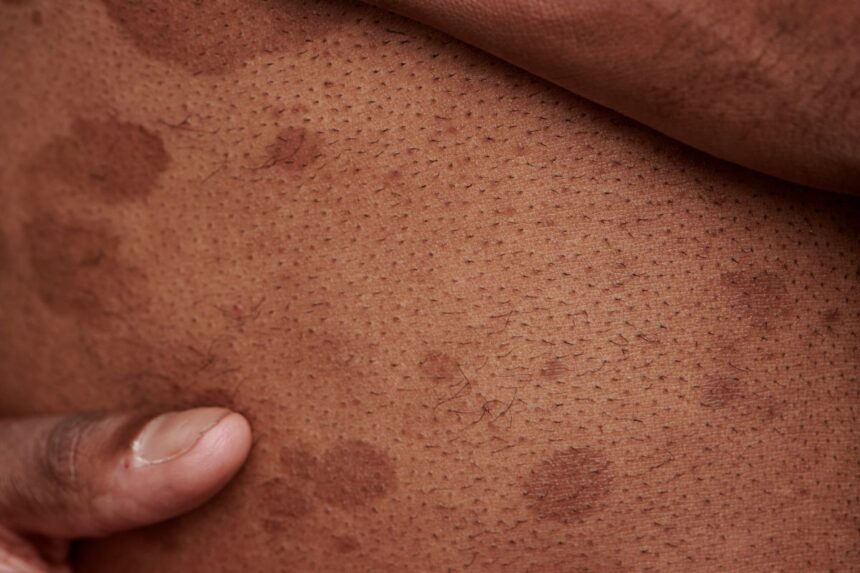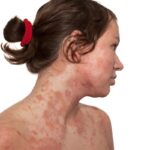In the quest for clear skin, hyperpigmentation creams have emerged as a beacon of hope, offering solutions that promise to not only fade dark spots but also to nurture skin health. This comprehensive guide explores hyperpigmentation treatments, focusing on the efficacy of creams, the promise of natural remedies, and the science behind skincare for hyperpigmentation. A common yet complex skin concern, affects millions worldwide, manifesting as dark spots and uneven skin tone that can diminish confidence.
Understanding Hyperpigmentation
Hyperpigmentation occurs when excess melanin forms deposits in the skin, leading to spots and patches darker than the surrounding area. Triggered by factors like UV exposure, hormonal changes, and injury to the skin, it presents in various forms, including melasma, sunspots, and post-inflammatory hyperpigmentation. Beyond the skin, hyperpigmentation can deeply affect individuals’ psychological well-being, prompting many to seek effective treatments among the myriad of hyperpigmentation creams available.
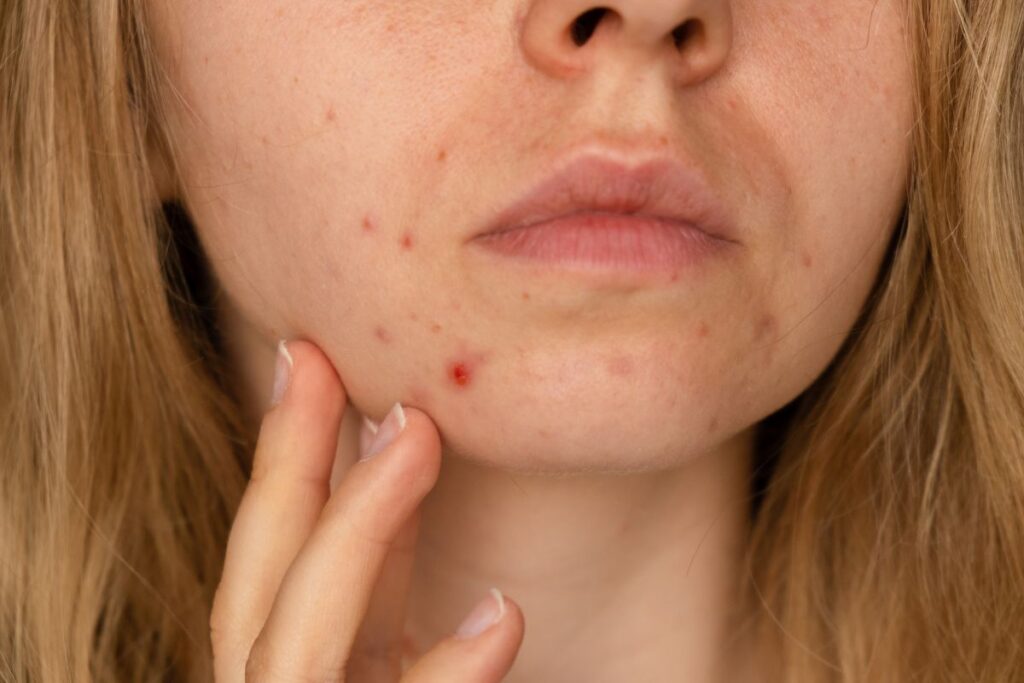
The Science of Hyperpigmentation Creams
Hyperpigmentation creams are the frontline warriors in the battle against uneven skin tone, formulated with potent ingredients designed to lighten dark spots. Ingredients like hydroquinone, kojic acid, niacinamide, and Vitamin C are celebrated for their ability to disrupt melanin production, accelerate cell renewal, and brighten the skin. However, the power of these components brings into focus the need for safety and regulation, highlighting the delicate balance between efficacy and skin health in skincare for hyperpigmentation.
Comparing Treatments: Natural vs. Medicated Creams
In the realm of combating hyperpigmentation, the debate between natural and medicated creams is prominent. Each approach has its merits, and often, the choice depends on individual preferences, skin sensitivity, and the severity of the condition.
Medicated Creams
These often contain powerful active ingredients like hydroquinone, kojic acid, niacinamide, and retinoids, which have been clinically proven to reduce melanin production and accelerate cell turnover. Medicated creams can provide quicker, more pronounced results in lightening dark spots and evening out skin tone. However, they may also come with side effects such as skin irritation, dryness, or, paradoxically, further darkening of the skin if used improperly.
Natural Remedies for Hyperpigmentation
In the realm of skincare for hyperpigmentation, natural remedies hold a special place. Their appeal lies not only in their gentleness but also in their ability to blend seamlessly into holistic skincare practices. As we explore these natural solutions, it becomes clear that they can work in harmony with hyperpigmentation creams, offering a balanced approach to managing dark spots and uneven skin tones.
Exploring Natural Ingredients
Several natural ingredients have been revered for their skin-lightening properties and ability to treat hyperpigmentation effectively. Among these, Vitamin C stands out for its antioxidant properties and its role in inhibiting melanin production, making it a key ingredient in skincare for hyperpigmentation. Similarly, licorice extract contains compounds that help disperse melanin and brighten the skin.
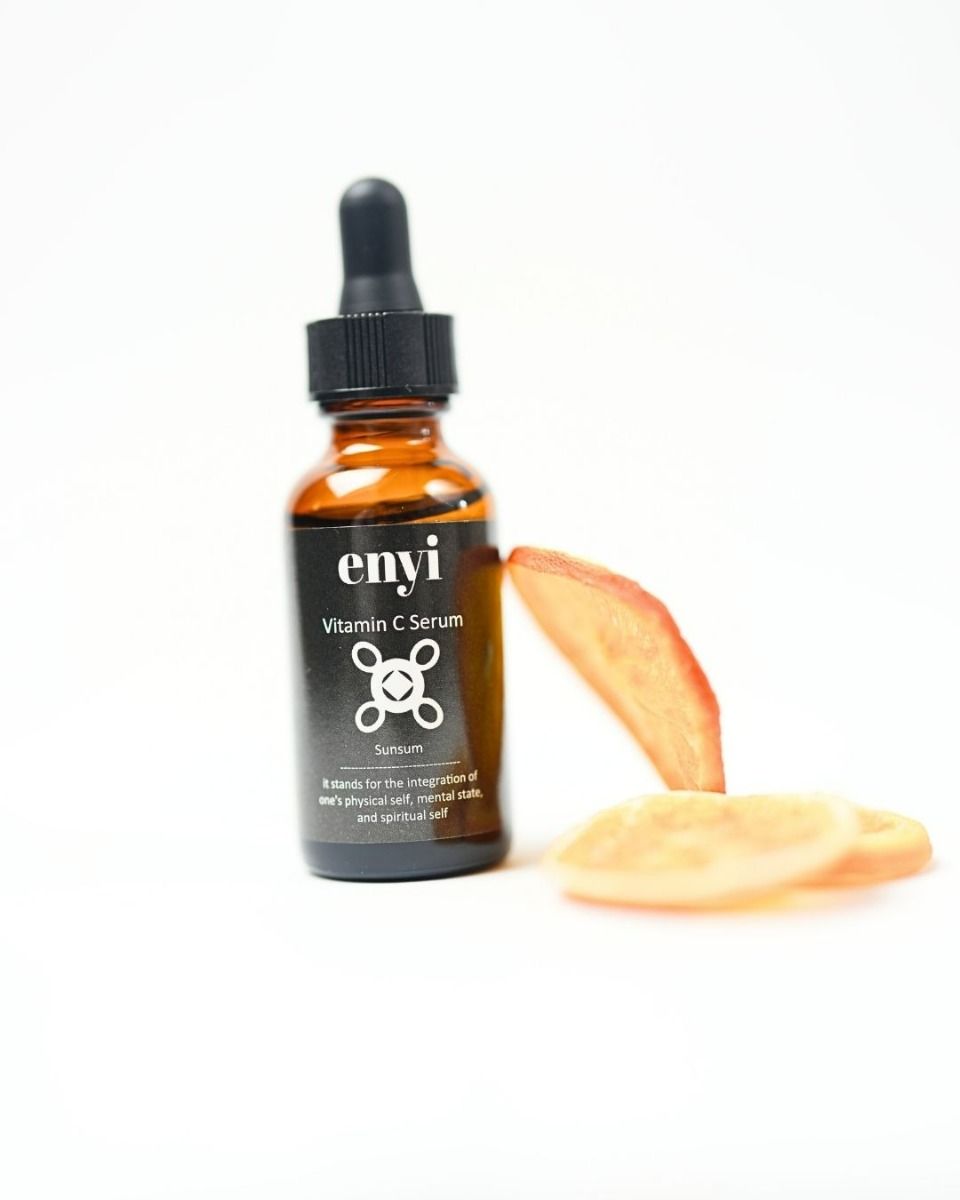
Vitamin C Serum For Hyperpigmentation
Unlock the Secret to Radiant Skin: Incorporate our Vitamin C Boosting Serum into your daily skincare ritual and witness a transformation. Each application is a step towards brighter, firmer, and more radiant skin, revealing your natural glow.
Mango butter and shea butter, rich in nourishing fatty acids and antioxidants, not only moisturize the skin but also help reduce the appearance of dark spots by softly evening out the skin tone.
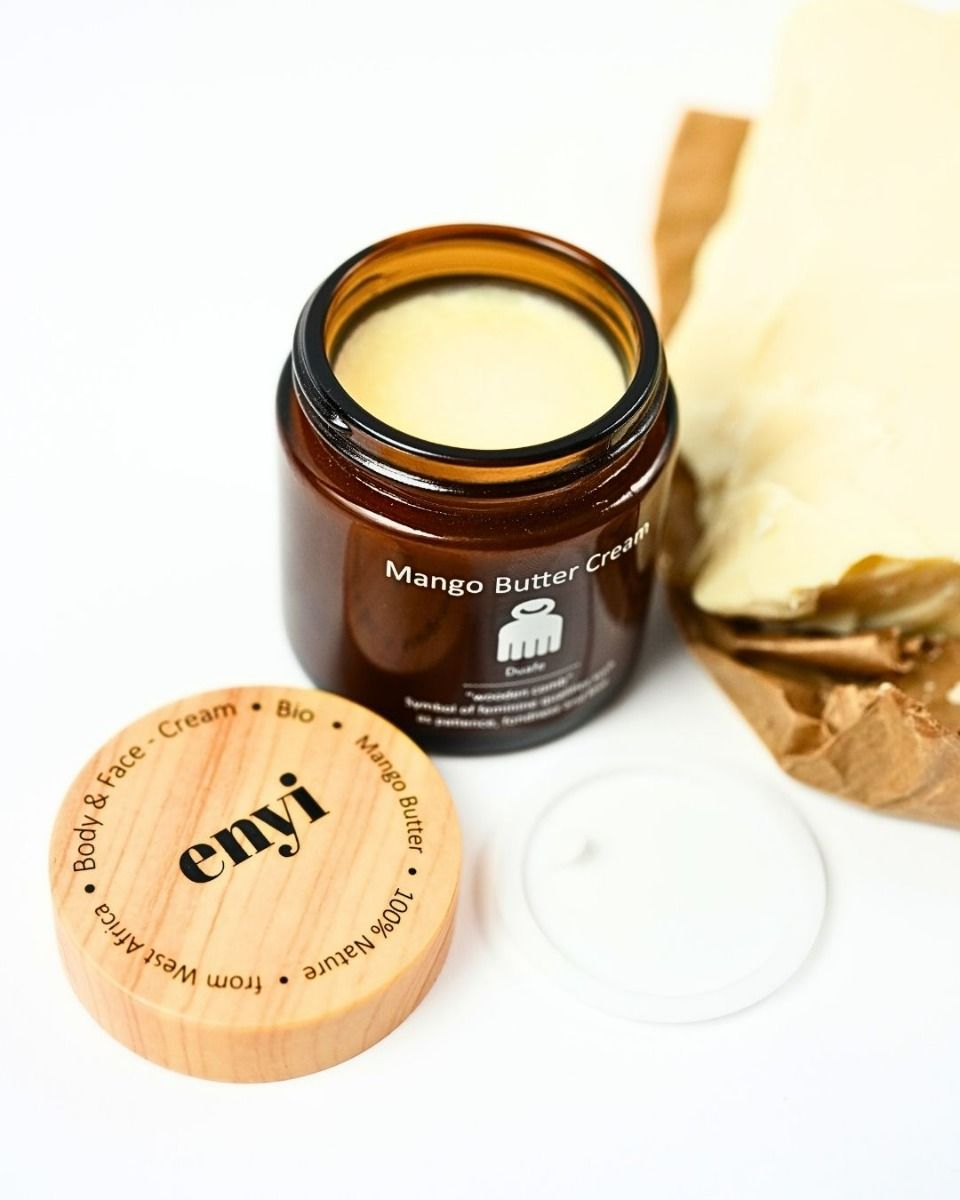
Mango Butter Cream For Hyperpigmentation
Skincare for Face and Body: Whether you’re looking to rejuvenate your face or pamper your body, our Mango Butter Cream is your go-to solution. Its gentle yet effective formulation is suitable for both face and body use, providing a seamless skincare routine.
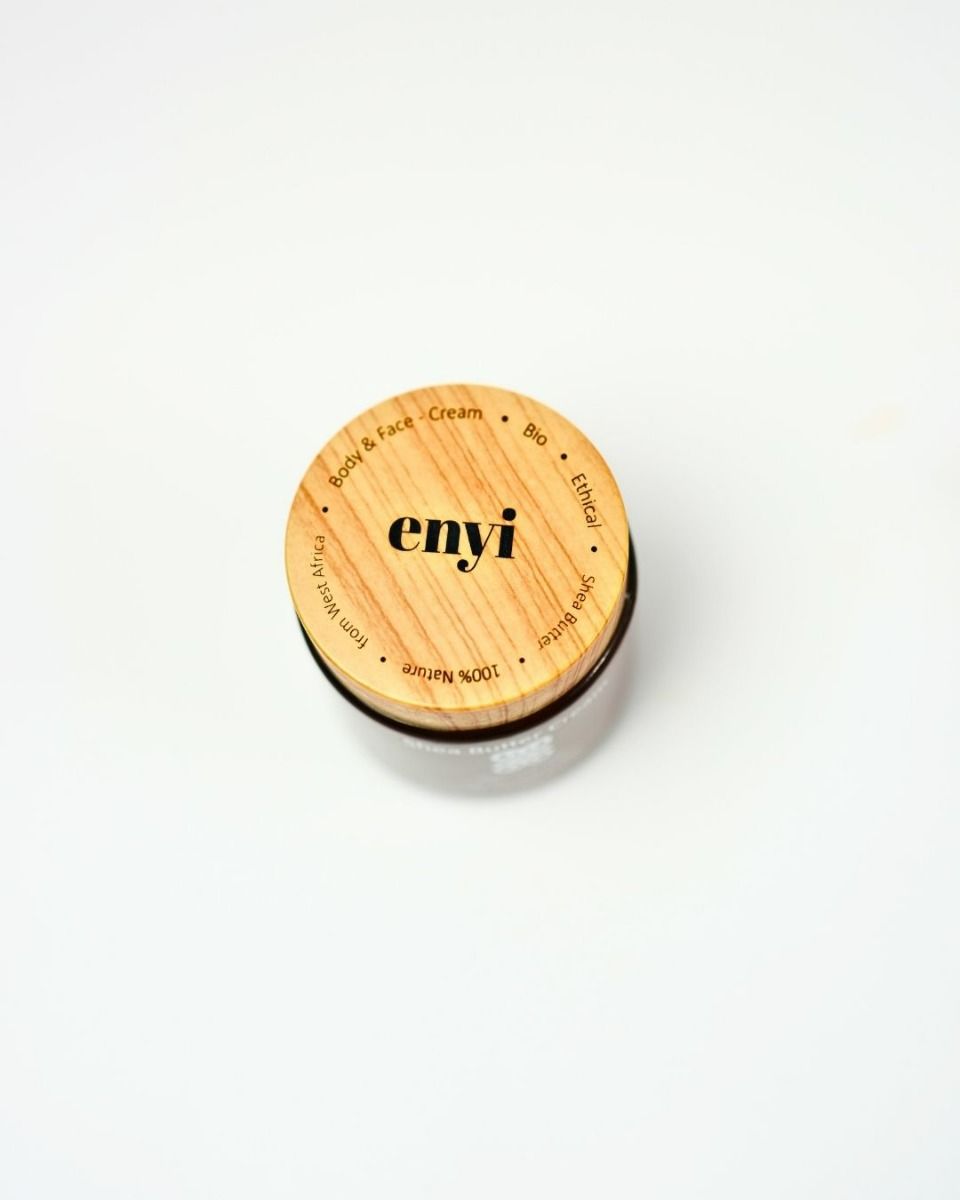
Shea Butter For Hyperpigmentation Treatment
Versatile Use for Complete Care: Our Shea Butter is incredibly versatile. Use it as a moisturizer for face and body, a base for DIY skincare recipes, a soothing agent for sunburns and hyperpigmentation.
Benefits Over Chemical Treatments
The benefits of natural remedies for hyperpigmentation extend beyond their skin-lightening capabilities. Their major appeal lies in their low risk of causing irritation or sensitivity, making them suitable for all skin types, including those too sensitive for more aggressive medicated creams. Additionally, natural remedies support skin health with vitamins and antioxidants, providing a foundation for resilient, glowing skin.
Incorporating Natural Remedies into Skincare Routines
Integrating natural remedies into a skincare routine for hyperpigmentation involves more than just applying these ingredients. It’s about understanding how they interact with your skin and with other products, including medicated creams. For instance, applying a Vitamin C serum in the morning under sunscreen can protect and treat the skin simultaneously, while using soothing butters like shea and mango at night can enhance the skin’s natural repair processes.
Combination Approach: Many find that a combination of both medicated and natural treatments offers a balanced path to reducing hyperpigmentation while maintaining overall skin health. For instance, using a medicated cream as a targeted treatment for dark spots, supplemented by a natural, nourishing cream to support skin barrier function, can be an effective strategy.
Preventative Measures and Skin Care Tips
Prevention is a cornerstone in the battle against hyperpigmentation. Effective prevention not only helps in managing existing hyperpigmentation but also in reducing the risk of developing new dark spots.
Sun Protection: The critical role of sun protection cannot be overstated. Daily application of a broad-spectrum sunscreen with an SPF of 30 or higher is essential, as UV exposure is a primary trigger for melanin production. Hats and protective clothing further shield the skin from harmful rays.
Antioxidant Use: Incorporating antioxidants into your skincare regimen, such as Vitamin C, E, and ferulic acid, offers dual benefits of preventing hyperpigmentation and mitigating the effects of sun damage.
Gentle Skincare: Avoiding harsh scrubs and chemicals that can inflame the skin is crucial, as inflammation can exacerbate hyperpigmentation. Opt for gentle, hydrating cleansers and moisturizers to support skin barrier function.
Regular Exfoliation: Gentle exfoliation can aid in the removal of pigmented cells, making room for new, healthy skin. Products containing mild acids like glycolic acid or enzymes offer effective, non-irritating exfoliation options.
Professional Treatments for Hyperpigmentation
When over-the-counter hyperpigmentation creams and skincare for hyperpigmentation routines offer limited success, professional treatments become a valuable consideration. Dermatologists can provide advanced solutions tailored to the severity and type of hyperpigmentation, employing technologies and concentrations of active ingredients not available in retail products.
Chemical Peels: Utilizing higher concentrations of acids to remove the top layer of the skin, chemical peels can significantly reduce the appearance of hyperpigmentation. They encourage new, less pigmented skin to surface, enhancing the overall effectiveness of skincare for hyperpigmentation.
Laser Therapy: Targeted laser treatments can break down melanin deposits without harming the surrounding skin. While highly effective, they require expert application and post-treatment care to prevent further pigmentation.
Microneedling: By creating micro-injuries in the skin, microneedling stimulates the body’s healing process, improving skin texture and reducing pigmentation. Often, it’s combined with topical treatments to enhance penetration and efficacy.
Consulting with a skincare professional can provide personalized advice and access to these powerful treatments, ensuring that individuals receive the most effective care for their specific type of hyperpigmentation.

When to See a Professional
While hyperpigmentation creams and natural remedies offer promising results, certain cases may require professional intervention. Persistent or severe hyperpigmentation, particularly types like melasma, which are influenced by hormonal factors, might not respond adequately to over-the-counter treatments. Dermatologists can provide access to more potent treatments, such as prescription-strength hyperpigmentation creams, chemical peels, laser therapy, and microneedling. These treatments, often more aggressive in targeting melanin production, can offer hope to those struggling with stubborn hyperpigmentation.
Success Stories and Real-Life Experiences
Among the most compelling aspects of skincare for hyperpigmentation are the success stories. Individuals who have navigated the challenges of hyperpigmentation often share their journeys, highlighting the effectiveness of various treatments, including hyperpigmentation creams. These testimonials not only serve as inspiration but also underscore the importance of a tailored approach. Success in treating hyperpigmentation can significantly boost confidence, demonstrating the transformative power of dedicated skincare regimens.
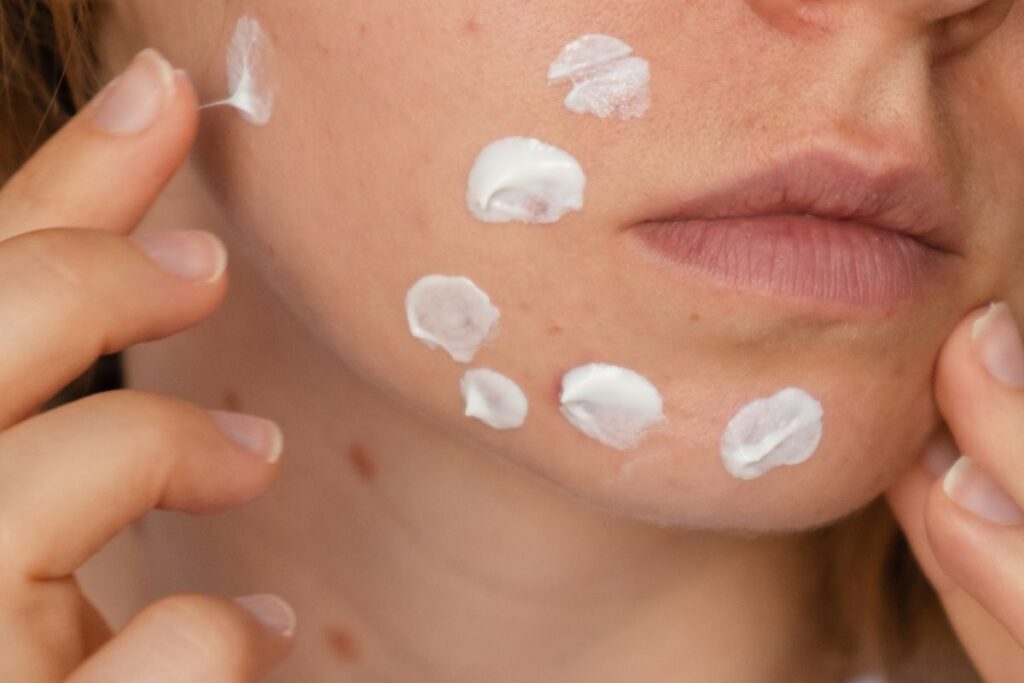
FAQs on Hyperpigmentation Treatments
Q1: What is the most effective hyperpigmentation cream?
The effectiveness of a hyperpigmentation cream depends on its active ingredients and how well they align with your specific skin concerns and type. Products containing hydroquinone, niacinamide, and Vitamin C are generally considered highly effective. However, consulting with a dermatologist to tailor the choice to your needs is advisable.
Q2: How long does it take for hyperpigmentation creams to work?
Visible improvement typically takes time; most hyperpigmentation creams require consistent application for at least 8 to 12 weeks before significant changes are noticeable. Patience and consistency in application are key.
Q3: Can natural remedies for hyperpigmentation be as effective as medicated creams?
Natural remedies can be effective, especially for mild hyperpigmentation and for individuals with sensitive skin. While they might take longer to show results compared to medicated creams, they offer a gentler and more holistic approach to skincare.
Q4: Are there any side effects of using hyperpigmentation creams?
Yes, certain ingredients in medicated creams, such as hydroquinone and retinoids, can cause side effects including skin irritation, redness, and peeling. Natural remedies are less likely to cause adverse reactions, though it’s possible to have sensitivities to any skincare product. Performing a patch test and starting with lower concentrations can help mitigate potential side effects.
Q5: Can hyperpigmentation creams make dark spots worse?
Incorrect or excessive use of some hyperpigmentation treatments can lead to worsening of dark spots, especially in those with darker skin tones. It’s crucial to follow product instructions and dermatologist recommendations closely to avoid such outcomes.
Q6: How can I prevent hyperpigmentation while treating it?
Prevention is integral to treating hyperpigmentation. Wear broad-spectrum sunscreen daily, avoid direct sun exposure, especially during peak hours, and incorporate antioxidants into your skincare routine to protect against UV damage and free radicals.
Q7: What is the best skincare product for hyperpigmentation?
Identifying the “best” skincare product for hyperpigmentation depends largely on individual skin types, the specific cause of hyperpigmentation, and how one’s skin reacts to certain ingredients. Generally, products containing active ingredients like hydroquinone, niacinamide, vitamin C, and retinoids are among the most effective for reducing dark spots and evening out skin tone. For instance, a product with a high concentration of Vitamin C can both inhibit melanin production and fade existing dark spots, making it a favorite in skincare for hyperpigmentation.
Q8: What is a good skincare routine for hyperpigmentation?
A good skincare routine for hyperpigmentation involves several key steps:
- Cleansing: Use a gentle cleanser to remove dirt and oil without stripping the skin’s moisture barrier.
- Exfoliating: Incorporate a mild exfoliant 2-3 times a week to remove dead skin cells and improve product absorption.
- Treatment: Apply a targeted treatment product containing ingredients proven to reduce hyperpigmentation, such as those mentioned above.
- Moisturizing: Hydrate the skin with a moisturizer suitable for your skin type to help repair and strengthen the skin barrier.
- Sun Protection: Daily application of broad-spectrum sunscreen (SPF 30 or higher) is crucial to prevent further hyperpigmentation and protect the skin from UV damage.
Consistency with this routine, particularly the treatment and sun protection steps, is critical for seeing improvements in hyperpigmentation.
Q9: Does vitamin C help hyperpigmentation?
Yes, Vitamin C is highly effective in treating hyperpigmentation. It’s an antioxidant that inhibits the enzyme tyrosinase, reducing melanin production, which can help prevent new dark spots from forming and fade existing ones. Vitamin C also helps to brighten the complexion and improve overall skin tone. Look for serums or creams with stable forms of Vitamin C and pair them with sunscreen for the best results in skincare for hyperpigmentation.
Conclusion
Hyperpigmentation, with its myriad causes and impacts, presents a formidable challenge in skincare. Yet, through a comprehensive understanding of its mechanisms, a careful selection of hyperpigmentation creams, and a commitment to preventative measures, managing hyperpigmentation becomes an achievable goal. Whether opting for medicated treatments, natural remedies, or professional interventions, the journey to clearer skin is a personal one, paved with patience and informed choices. Encouragement and support from success stories and expert advice further illuminate this path, offering hope and clarity to those seeking to overcome hyperpigmentation.
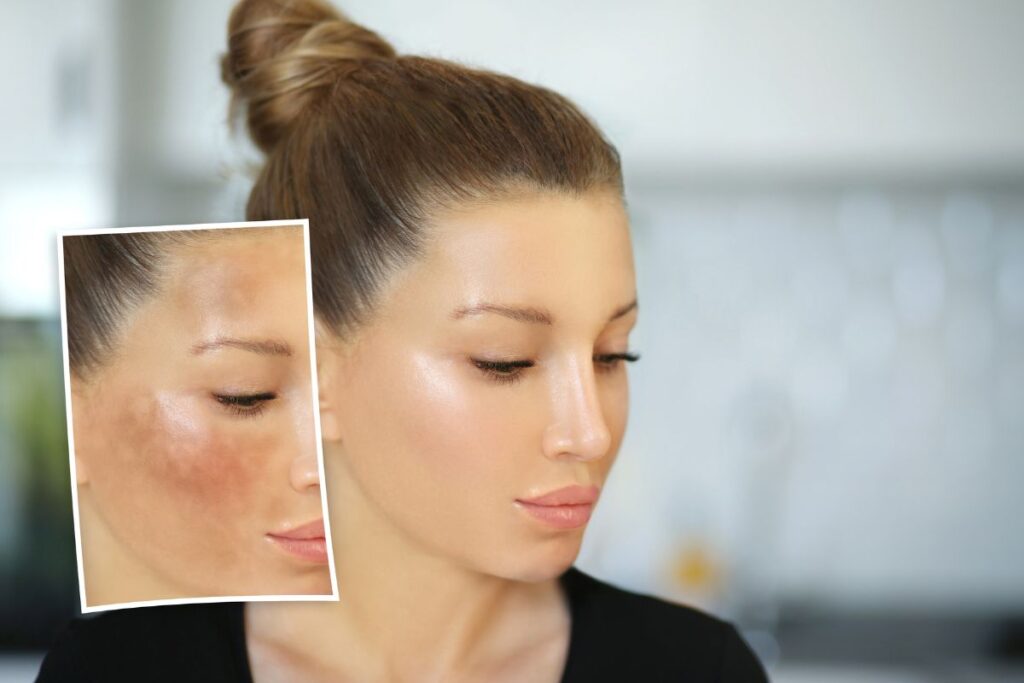
Resources and Further Reading
For those eager to delve deeper into the topic of hyperpigmentation and skincare, a wealth of resources awaits. Reputable skincare brands, dermatological research, and patient advocacy groups offer in-depth information and support. As the field of dermatology advances, staying informed about new treatments and products, including the latest in hyperpigmentation creams, ensures that individuals are well-equipped to tackle hyperpigmentation with the most effective tools at their disposal.
Why Should You Trust Us?
Our readers should trust us because we are committed to providing well-researched, accurate, and up-to-date information on skincare and hyperpigmentation. Our content is crafted by experts who deeply understand dermatology and skincare science, ensuring that every recommendation, from hyperpigmentation creams to comprehensive skincare for hyperpigmentation routines, is backed by the latest research and dermatological best practices. We prioritize the health and well-being of your skin, aiming to deliver advice that’s not only effective but also safe and tailored to a wide range of skin types and concerns. Our dedication to transparency and education empowers you to make informed decisions about your skincare, fostering trust through knowledge and results.


